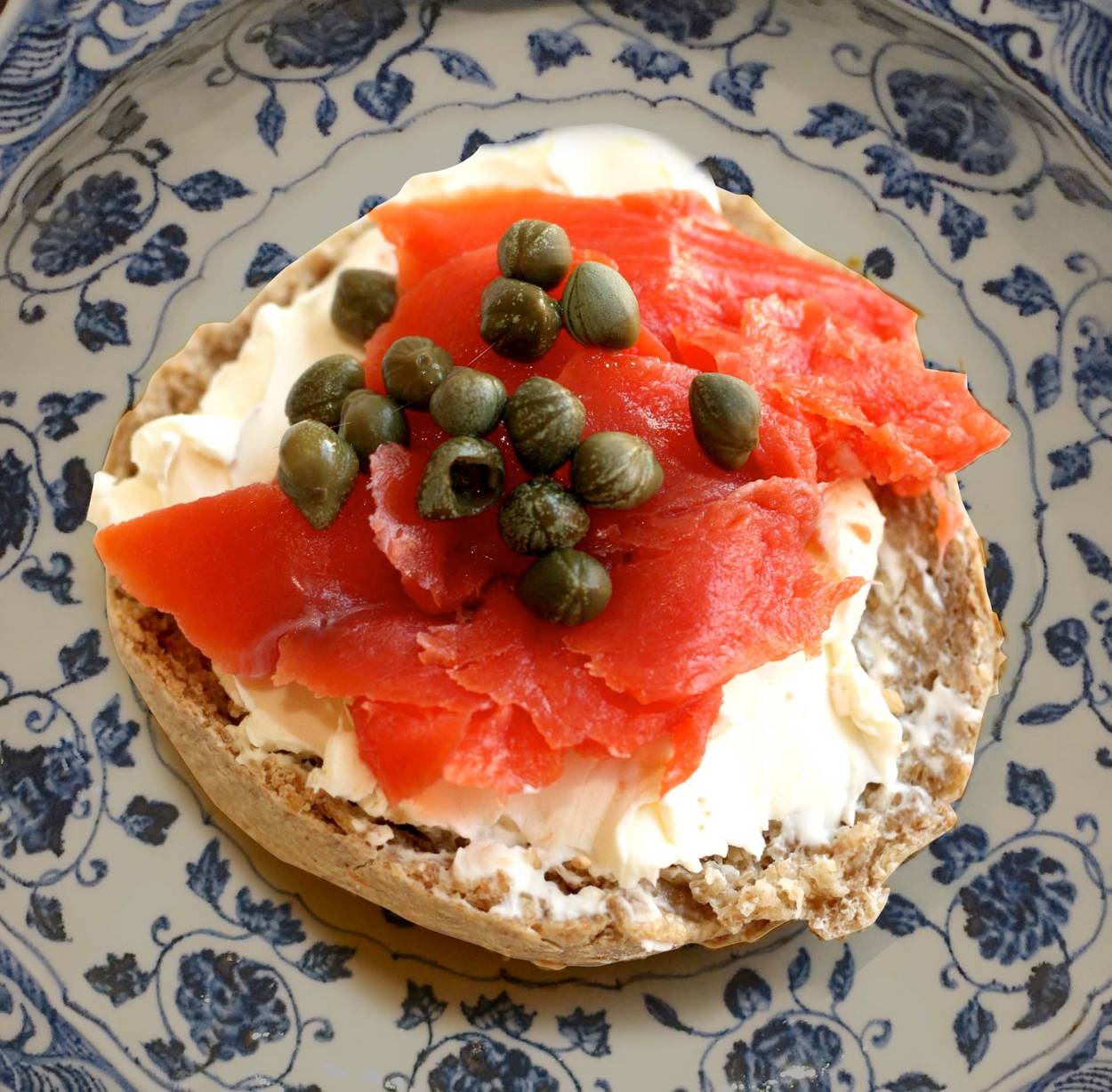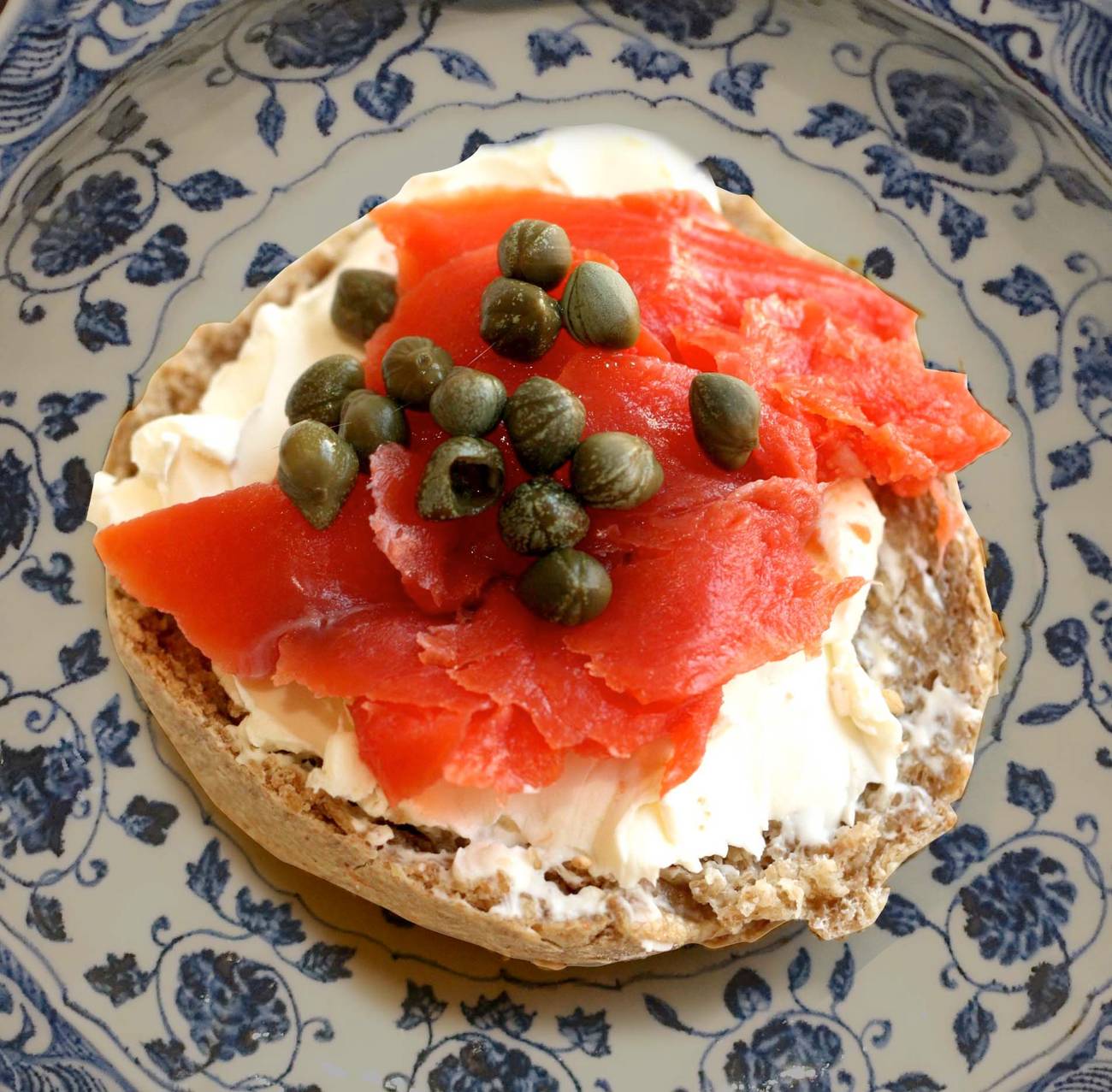A Land Without a Bagel
My search for my favorite breakfast while studying abroad in China




When I was studying abroad in China, one of the hardest things for me to adjust to was breakfast: A typical morning meal might consist of a bowl of noodles with a light chile oil or a fried breadstick to dip into a bowl of warm sugared soy milk. I preferred something a bit doughier.
Every morning I would go to my favorite open-front restaurant in Chengdu, where two sisters sold fresh baozi—fluffy steamed buns—and had memorized my order: four buns stuffed with spicy pickled vegetables. But although I was thoroughly enjoying these savory buns, it wasn’t long before I realized that the baozi were serving as a place holder for possibly the most important breakfast food in my life: bagels.
And so, I set out on a seemingly impossible journey, to find a bagel in China.
My high school in suburban New Hampshire was exceedingly white and goyish; I could count the other Jewish kids on one hand, and one of them was my own brother. My parents, who grew up in the greater New York City area, didn’t understand what they were getting their children into when they made the move to New Hampshire: kids throwing pennies at us and making jokes about putting us in the oven. And apart from that, there weren’t even any good delis or bakeries around. We had to create our own little Jewish community at home, where the centralizer, for me, was always food: I would bring my mother’s matzo ball soup, or matzo and cream cheese, to school for lunch; kids would point and recoil at my “Jew food.”
My favorite tradition became a Sunday bagel with my father. He would wake up early and travel to the bagel shop in the next town, leaving a fresh onion bagel with chive-and-onion cream cheese on my place at the table for when I woke up. These bagels were nothing compared to the ones we would get during our annual trips to New York, but for me, they were an important symbol that connected me to a culture I never had full access to.
When I was studying in China, my dad sent me photos of fresh bagels with homemade cream cheese on Sunday mornings, which tugged at my heartstrings like nothing else. The longer I spent in China, the stronger the need grew to recreate that culinary experience, which was also a religious or cultural one.
It might sound hopeless to try to find a bagel in China, but many foreigners open restaurants to cater to foreign tastes. In Chengdu, Tongzilin is a neighborhood well known for being home to most foreigners who live there, complete with Italian, Mexican, American, and other international restaurants.
It was in Tongzilin that I came closest to achieving my goal: an Israeli-owned shop called Munchwich that offered incredible bagel sandwiches. It took two subway transfers, a 10-minute bike ride in the rain, and 15 minutes waiting inside the restaurant itself for the hostess to tell me that, for whatever reason, I could not just order a bagel and cream cheese. I don’t think they even had cream cheese in the store.
My failure at an Israeli restaurant, of all places, should have been an indication that it would only be bad luck from here on out. Every time I had a new lead on where I might be able to find my treasure, the road led to a dead end: the American bagel shop that had recently closed, the numerous foreign grocery stores across the city that always carried Philadelphia cream cheese but never any bagels.
Twice, I came upon Chinese bakeries that claimed to be French or Western style and apparently sold bagels in-store. Both offered me the promise of a bagel, but there were two problems: First, the cashiers had no idea what I meant by “cream cheese” and there seemed to be no translation that made sense to them. Second, when I reluctantly bit into my plain bagel, it tasted … sweet. Baking became popular in China as a result of Western influence, and all things baked in an oven or made with Western-style bread are apparently considered desserts. Any Westerner who has spent time in China will understand the feeling of biting into a sugary piece of “French bread.” Defeat never tasted so sweet.
I was beginning to lose hope when it finally came time to spend the final few weeks of my trip traveling; I would spend five days in Beijing, one of China’s most international cities. Some exhaustive Google searching uncovered a hidden gem called Mrs. Shanen’s Bagels, which claimed to sell real Brooklyn-style bagels right in the center of the capital. Although I was only a week away from heading back home to the U.S., where I could get as many mediocre bagels as my heart desired, the closeness of it was too strong to pass up. I spent half a day trying to track this place down only to find it hidden in an obscure Beijing neighborhood, a locked fence blocking me from approaching it. Mrs. Shanen’s Bagels had closed.
The last few days of my trip were spent in Hong Kong, a strange clash of East and West that had produced its own unique culture. My morning bao became elbow macaroni in chicken broth with fried eggs on top. Hong Kong was romantic, but much too humid for my half-Sephardic, half-Ashkenazi hair to handle. I spent most of my final day in Asia sprawled out on the bed in my Airbnb, air conditioning cranked to full blast, dreaming of home. Four and a half months of nonstop adventure had exhausted me. Twenty hours of half-asleep travel later, my plane was pulling into Boston Logan airport.
My parents had been well informed of my bagel deprivation, even if they didn’t understand quite what it was like: They had grown up with an all-access pass to unlimited rugelach and egg creams and fresh bagels baked daily by the Jewish shop owner down the street; I had grown up with something kind of resembling the idea of a bagel. Regardless, they entertained my dream: The first thing I did after exchanging greetings at the airport was grab a bagel from the closest Dunkin’ Donuts. This was the moment I had been dreaming of since I left home for my great adventure in China, my consolation prize after searching the country for it and only finding disappointment. A bagel-shaped hole had carved itself into my heart and I was about to fill it.
“Is it everything you’ve been wishing for?” my mom asked.
It wasn’t. After all this anticipation, the Dunkin’ Donuts bagel wasn’t that good. It was certainly not fresh; the bagel had likely come out of the oven over 12 hours ago. It was much too chewy, borderline stale, and the Philadelphia cream cheese that came with it was too dense. The whole thing tasted like an artificial recreation of Jewishness, something second best, a knockoff. But then again, that was all I had ever known of Jewish food growing up in New Hampshire. I couldn’t say that it didn’t taste exactly like home. It was perfect.
Jordyn Haime is a freelance journalist based in Taipei. She spent the past year researching Judaism in Taiwan under a Fulbright grant.